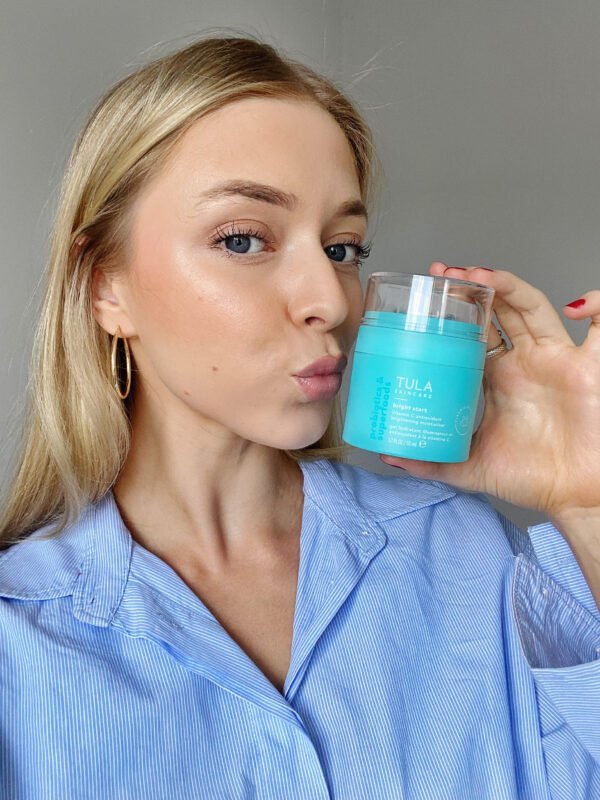
These Hair-Washing Mistakes are Damaging Your Locks

Hair washing is a hot topic on social media as users love to share hacks and advice on ways to care for your hair, with #hairwashingtips and #hairwash having 11.2 million and 837.9 million views on TikTok, respectively.
But in a sea of advice, it’s difficult to know what is best for your hair and how to take care of it, especially with hair washing.
Nicole Petty, Hair Expert at Milk + Blush, shares the biggest mistakes you may be making with your hair-washing routine and gives her top tips to address them.
Washing tangled hair
When wet, your hair is most fragile as water naturally weakens the protein bonds forming the hair shaft.
Aggressively attempting to detangle hair mid-wash when it is most vulnerable can result in excessive hair fallout, split ends, and breakage. Instead, take time to carefully detangle your mane ahead of washing.
Start by gently brushing out the bottom third of your hair and gradually work your way up the scalp in sections.
Not only will this make washing and detangling your hair a far less painful experience, but it will also prevent harsh pulling on the roots that can often cause fallout and damage.
Skipping shampoo
Referred to as the ‘No-Poo’ method, skipping the shampooing step of your hair wash routine can work for dry or curly hair types, but for most, it’s an essential step in your regimen.
Like the skin on your body and face, your scalp can experience product and oil build-up from styling and general day-to-day living, so it’s important to cleanse, exfoliate, and rehydrate it to prevent scalp flaking and hair loss caused by an unhealthy scalp.
To ace your shampooing, start by wetting your hair thoroughly and rinsing out the excess water.
Pour about a 50p coin-sized amount of shampoo into your palm and add a splash of water before rubbing the mixture between your hands to create a lather.
Then, apply the shampoo to the scalp and massage it in for one to three minutes, avoiding the mids and ends of your hair.
To avoid damaging the scalp’s surface, don’t use your nails. Instead, use the tips of your fingers to work the shampoo in gently to avoid tangling your hair.
Finally, spend at least one minute rinsing your hair to remove all the shampoo residue and eliminate the chances of product buildup.
Using the wrong products
There’s a broad range of products available with an endless array of ingredients, but mosttarget specific hair concerns. So, research before investing for advice on which will most benefit your hair.
For example, dry hair benefits from nourishing oils such as coconut, argan and jojoba, which are rich in vitamins and antioxidants and can penetrate deep into the hair to nourish and hydrate it.
Meanwhile, oily hair can benefit from rosemary, tea tree, and peppermint oil as they help regulate oil production, decongest the scalp, and balance pH.
Particularly damaged hair will benefit from bond-building products to help repair weak strands. Curly hair can see great results from castor oil and glycerin-based products, which act as natural humectants which help retain moisture by preventing water loss.
Rinsing with hot water
Whilst hot water can be beneficial for helping products absorb deep into the hair, it can also strip the hair of its natural oils, causing dryness and excessive oil production to compensate for a dehydrated scalp and tresses.
This can cause scalp flaking and itchiness, resulting in strands feeling dry and brittle and leading to breakage.
Instead, rinse your hair with lukewarm water to preserve the natural oils in your hair and retain moisture.
Aim to wash your hair in water no warmer than 38 degrees Celsius to minimise dandruff and help make your hair look shinier, as cooler water helps to seal the hair cuticle and lock in moisture.
Overwashing your hair
The frequency of hair washing depends on your hair type and lifestyle, but overwashing is a common mistake that can damage your hair.
Excessive washing can strip the natural oils and dry your locks out, leaving it prone to breakage and thinning, dulling the natural shine and increasing oil secretion to recoup lost moisture and stripping hair colour faster.
As a general rule, you should avoid washing your hair more than 2-3 times per week.
Hair that becomes oily quickly may indicate that you’re overwashing or over-stripping the hair.
If this is the case, try training your hair by using dry shampoo to increase the longevity of time between washes and avoid using overly stripping ingredients such as sulfates, parabens, and alcohol.














































